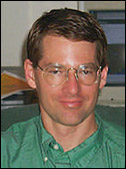ABSTRACT
Through support of the National Science Foundation’s Department Level Reform program, Engineering Students for the 21st Century (ES21C) has implemented a ten-course sequence designed to help students develop into engineers. Spread across the Electrical and Computer Engineering (ECE) curriculum at Oklahoma State University, these courses were supported by engaging graduate students, building infrastructure to scaffold student development, and self-reflection on what it means to develop as an engineer. Four case studies from the spectrum of courses illustrate the on-going changes. While the project is still in the process of measuring changes in student learning and attitudes, preliminary project evaluation results are presented along with how formative evaluation has changed the project direction. From participants’ experiences, both expected and unexpected, some of the factors that contribute to project successes and failures are outlined. A key finding is that the journey of reforming undergraduate programs needs to be guided by knowledge of both current location and destination. A taxonomy developed under this project to guide, discuss, and measure reform efforts is introduced that helps faculty map pathways to meaningful reform.
Click for Full-Text PDF Article.

